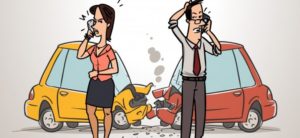Tips For Maximizing Your Compensation Following an Accident

If you’ve suffered damages– either physical, financial, or psychological– as a result of another party’s negligent and/or reckless behavior, you may be eligible to file a personal injury claim. The biggest factor in determining for sure whether or not you have a case is if the other party can or cannot be held liable.
If sufficient evidence is presented that does indicate fault on behalf of the other party, a settlement may be reached at that point. If not, the case will go to trial and be decided by a jury. In a personal injury case, evidence may take the form of videos or pictures, medical records and diagnoses, witness and expert testimony, and more.
Common Personal Injury Suits
As a large personal injury firm, we are constantly working on the following types of cases:
- Motor Vehicle Accidents
- Premises Liability Accidents
- Slips and Falls
- Defective Drugs, Products, and Medical Devices
- Workers’ Compensation Claims
- Bad Faith Insurance Claims
- Uninsured/ Underinsured Motorist Accidents
All personal injury cases revolve around the plaintiff seeking compensation for injuries sustained at the hands of another; as such, the defendant may take the form of an individual person, a product manufacturer, a property owner, or an insurance company.
For a free legal consultation, call (725) 900-9000
Most PI cases involve the concept of negligence. Legally, negligence is argued based off of four factors: 1) the defendant owed you a duty of care, 2) they disregarded this duty (acted negligently), 3) this breach of care was shown to have actually caused the injuries in question, and 4) the plaintiff suffered physical and financial damages from the injuries.
These cases are complicated and often involve immense amounts of negotiation with insurance companies and defense counsel. That is why the best course of action is to always enlist the services of an experienced personal injury attorney.
Initial Steps of A PI Claim
After you’ve been involved in an accident that was not your fault, there are certain actions you should take immediately following the incident. These include:
- Use your phone to take photos and videos of the scene, including the damage to all vehicles
- Jot down any notes or details that you think may be important at the time
- Exchange information with the other parties involved and any witnesses if possible
- Get copies of any reports or records of the accident
- Do not sign anything under any circumstances
- Do not accept bribes from the guilty party or low settlement offers from insurers
- Contact a professional personal injury lawyer
In personal injury cases, attorneys are expected to argue as vehemently as possible on behalf of their clients, whether that is by investigating the crash scene, speaking with witnesses, or hiring medical and accident reconstruction experts to testify for your case.
When Should I File a Claim and What are the Costs?
Click to contact our personal injury lawyers today
Any case that is brought before a court must fall within the statute of limitations for that state. This can be anywhere from 1 to 6 years, depending on the state– most fall between two and three years. It is generally advised that accident victims come forth as soon as possible, in order to best preserve evidence and gather witnesses.
Complete a Free Case Evaluation form now
In terms of cost, the vast majority of personal injury attorneys work on a contingency-fee basis. This means that there are no out-of-pocket costs up front, and that the overall attorney fees (typically between 33 and 40 percent) will be taken from the overall settlement or verdict that is awarded to you. Conversely, if no settlement is reached, there is no fee. That’s what firms mean when they advertise, “We don’t get paid unless you do.”
Generally, claimants are advised to be extremely wary of any personal injury lawyer that asks for fees up front, or still charges fees for a lost case.
Compensation in Personal Injury Cases: Contact Us
When you’ve successfully argued your case, the last step involves collecting damages. Essentially, you can recover damages for anything that was affected by your injuries, including: medical reimbursement for incurred costs, property damage to repair your belongings, lost wages to supplement the income surrendered while rehabbing, and even non-economic damages such as pain and suffering and loss of enjoyment of life. In extremely serious cases, punitive damages may also be awarded as a punishment for exceptionally reckless behavior.
Contact the trusted Las Vegas and Washington personal injury attorneys at Van Law Firm for a free consultation to see whether or not your case is eligible. With over $150 million recovered for our clients and over 500 5-star reviews, it’s no secret that we are one of the most trusted firms in the country. Don’t wait– call today to see why for yourself.
No obligation consultations are always free.
Let Us Help You! Call Now: (725) 900-9000


